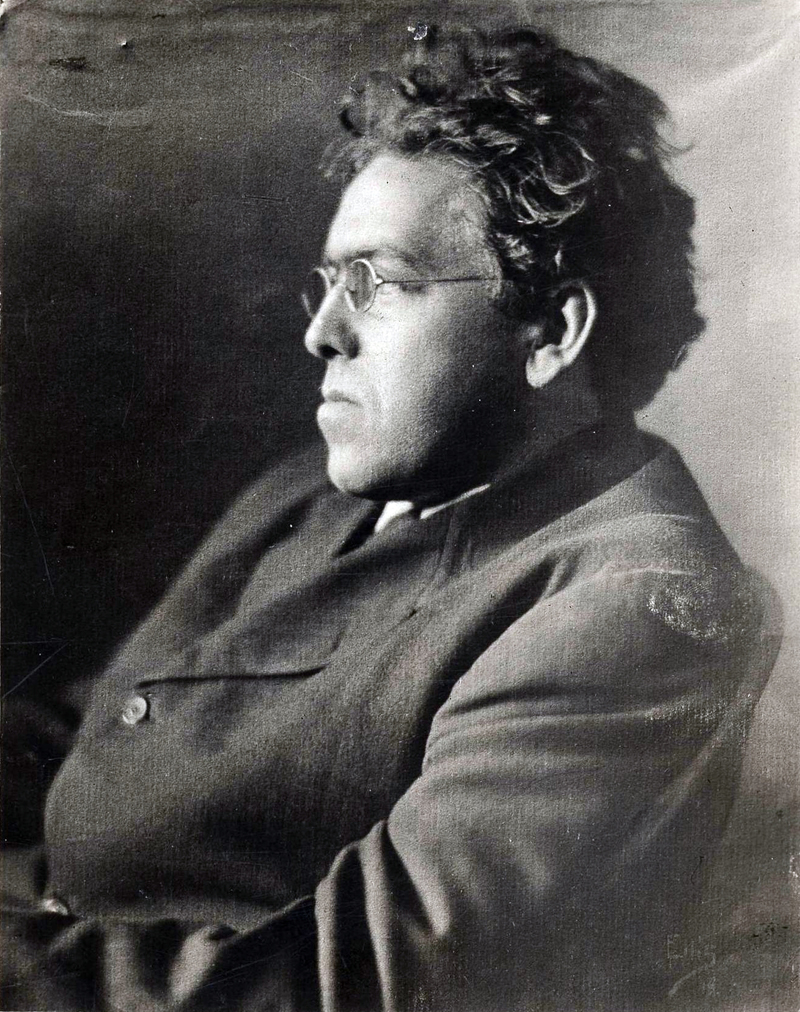|
|
By N.C. Wyeth

Click image to enlarge November 20, 2014 — "Ramona and Alessandro on The Narrow Trail" by N.C. Wyeth sells for $665,000 ($550,000 plus buyer's premium) at a Sotheby's auction of American art in New York. Oil on hardboard, 25x16¾ inches, 1939.
Although Jackson intended for her novel to stir public interest in the mistreatment of Native Americans, it had a different effect. Its initial publication coincided with the rise of the railroads in Southern California, a time when the Southern Pacific and others were heavily promoting tourism in order to increase ridership and expand the population. Intrigued by the romance of "Old California" as depicted by Jackson, Eastern readers sought out the "real" Ramona (not quite grasping she was fictional) and the places described in the book (ditto) — places like the Del Valle family's Rancho Camulos, thought to be the "Home of Ramona" on the basis of Jackson having visited the ranch in 1882. During her stay in Los Angeles that year, Jackson was hosted by Antonio F. and Mariana Coronel, friends of the Del Valles, who gave her the idea of using Camulos as a principal backdrop for her novel. Wyeth's "Ramona and Alessandro on The Narrow Trail" is reproduced opposite page 234 in the 1939 edition. At this point in the story, the title character and her lover flee into the mountains of San Bernardino. (Jump to this section of the novel.) If Wyeth's mountains look more like Arizona than Southern California, it could relate to the fact that Wyeth (Oct. 22, 1882 - Oct. 19, 1945) was an East Coaster who cowboyed in Colorado and traveled throughout Arizona during his brief Western period in the first decade of the 20th Century before returning east in 1908 and settling in Pennsylvania. The Sotheby's catalog listing for this work reads as follows:
Ms. Jackson began her campaign on behalf of Native Americans in 1881 with A Century of Dishonor, a nonfiction treatise intended to expose the U.S. Government's mistreatment of the country's indigenous people. Despite distributing the book to every member of Congress, little political action was taken. Jackson wrote the fictional Ramona to raise awareness among all Americans, hoping the romanticized tale Ramona and Alessandro would have similar impact to that of Harriet Beecher Stowe's Uncle Tom's Cabin. It became one of the most widely read books of the time, inspiring pilgrimages to many of the sites in Southern California depicted in the story. The seller of "Ramona and Alessandro on The Narrow Trail" in the 2014 Sotheby's auction was the Hachette Book Group, which is the successor company to Little, Brown and Co. Formed in 1837, Little, Brown and Co. was acquired in 1968 by Time Inc.; in 2006, Hachette acquired the Time Warner Book Group. Hachette Book Group is owned by Hachette Livre, the largest publishing company in France; Hachette Livre is a wholly owned subsidiary of Lagardère Group, an €8 billion multimedia company based in Paris (as of 2014).
LW2761: 19200 dpi jpeg. |
SEE ALSO:
Camulos Visit,
SoCal Observations (Odell 1939)
Portraits x2
Full Text
HHJ Gravesite 1912
I Knew Ramona, by Jose Jesus Lopez
Roberts Story 1886
Antonio Coronel Bio, HSSC 1900
"Narrow Trail" by Wyeth 1939
|
The site owner makes no assertions as to ownership of any original copyrights to digitized images. However, these images are intended for Personal or Research use only. Any other kind of use, including but not limited to commercial or scholarly publication in any medium or format, public exhibition, or use online or in a web site, may be subject to additional restrictions including but not limited to the copyrights held by parties other than the site owner. USERS ARE SOLELY RESPONSIBLE for determining the existence of such rights and for obtaining any permissions and/or paying associated fees necessary for the proposed use.









